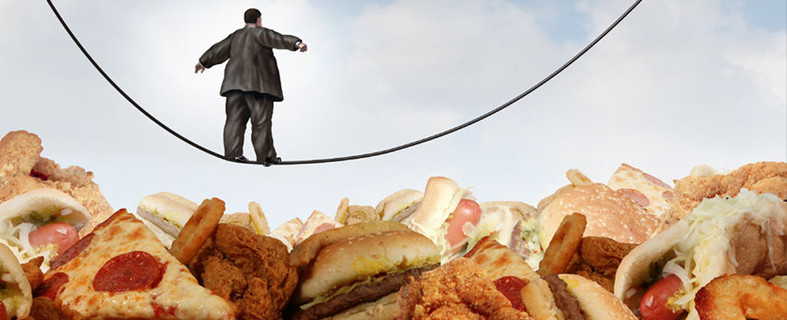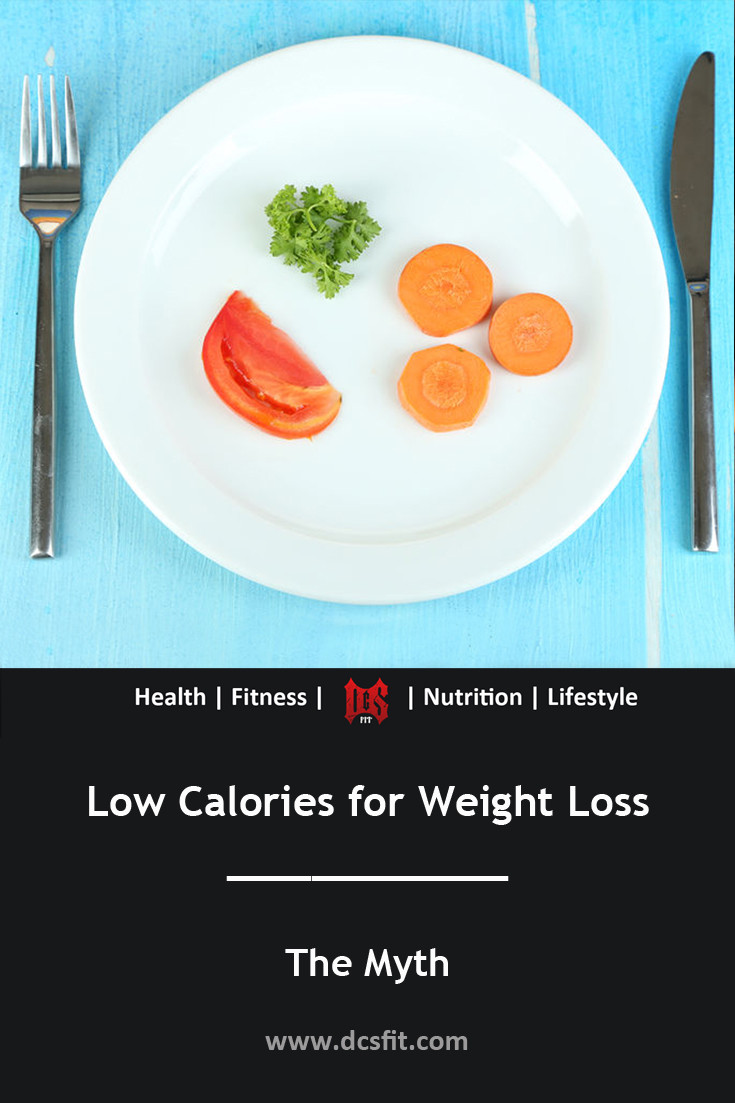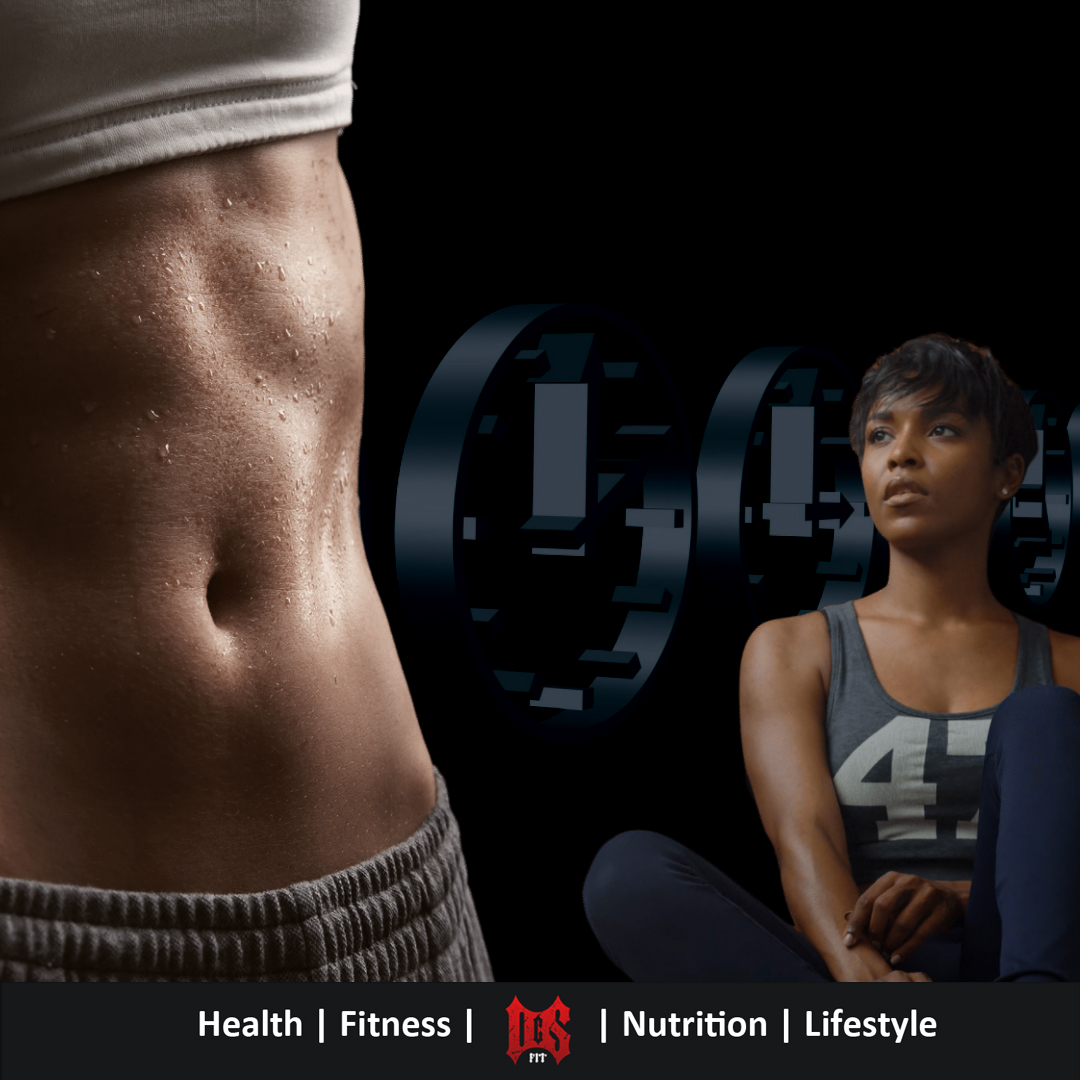LOSING WEIGHT
REQUIRES LOW CALORIES
Why am I not losing weight?
My calories are extremely low!
It’s an issue that, comes up frequently. But the problem is, the information on what to do to lose weight (or better, burn fat) is very contradictory.
On the one side of the fence, you will have many diet books selling the idea that, “you don’t need to count calories”, that carbs are the enemy, or fat and by eliminating those elements your body will change, and the fat will just melt away.
Alternatively, it may be a secret workout, a body-wrap, a pill or some contraption that is going to change your body in a way that it will become a fat burning machine that lets you eat as normal and yet start burning fat like never before.
On the other side, there are the nutritionists, personal trainers and gurus who tell you, it’s all about the calories. If you are not losing weight, you’re eating too much, plain and simple. The quality of the food isn’t important, you just need a calorie deficit and you will lose weight or a calorie surplus to add weight.
Are calories all that matter?
If you had to put your flag on one or other side of the fence, the second side, advocating that it’s all about the calories, is closer to the truth.
But is it the whole truth and nothing but the truth?
The short answer is, no.
The last part of the statement above is true. You must be in a calorie deficit to lose weight and you must be in a surplus to gain weight. That’s just simple physics.
The problem comes when it is taken as a soundbite and looked at in such simplistic terms.
Whilst it may not be what many mean to project, the way this argument is take is, the less you eat, the more weight you will lose.
This is clearly how things have been interpreted by many and is the key to the success of the slimming clubs and calorie restricted diet books.
It is extremely common to see ‘plans’ (and I use the term in its very loosest sense) advocating intakes of 1200 or even 800Kcal per day.
Someone going from overindulging to this level of extreme dieting is bound to see a drop on the scale weight. That’s a given. But, if it was all about the lower calories then the level of weight loss, achieved in the beginning, would last indefinitely. And, pretty much everyone knows that is not true.
What causes a diet to plateau?
The thing that seems to get missed in the discussion is the fact that there are two sides to the equation.
Whilst it is straightforward enough (though perhaps not easy) to count the calories going in, it is borderline impossible to count what is going out.
Yes, there are calculations you can use to estimate how much you are burning based on your weight, gender, age etc. And you could use a fitbit, a heart rate monitor or an app to tell you what you are burning when active, either through the day or during your workouts.
These are all useful to see patterns and trends, but they are only estimates.
For many, these estimates, whilst unlikely to be 100% correct, will be fairly accurate.
However, if you have been starving yourself, yo-yo dieting, under undue stress at work, getting insufficient sleep, not hydrating well enough or missing vital vitamins and minerals from your diet, chances are your internal function is not operating as it should be.
Therefore, in the scenario where calories have been severely cut to cause weight loss, short term weight loss is likely. But then, because your body is not getting the nutrients it needs and is under stress as a result, it starts to compensate and adapt.
Non-essential functions are shut off or slowed down and your body will try to trigger signals to get you to slow down. You’ll feel lethargic and get slower during your day to day tasks. Any exercise you do will be at a lesser level. You’ll achieve less (or you’ll push to do the same amount, which your body is not capable of and either hurt yourself or make yourself ill).
In short, your body will do all it can to match its energy output to the energy you are giving it through eating.
Therefore, despite the lower calories, you end up getting stuck and unable to lose weight.
How do you know how many calories you are burning?
The truth is, it is impossible to know without getting yourself hooked up to some very sophisticated machinery.
All you can do is track both sides of the equation as best you can and measure the results.
You could use one of the many BMR (Basil Metabolic Rate) calculations to determine a starting point. Then either use an app or an activity multiplier to determine your likely caloric requirements to keep you as you are at the moment.
From there, create a small deficit.
Around 500Kcal per day is a good starting point.
Work on keeping to that, and the activity level you committed to when doing your calculations. Then, check your results and see if things have gone to plan.
Ideally you would use bodyfat testing (either via skinfold calipers or, if possible, a DAXA scan), but you could use other methods, such as waist measurements or simple photographs.
Scales are not advisable, unless you have a very weight specific goal (sports person working to a weight class etc) as these skew your results if you gain muscle or bone density, which are good things to happen.
If things are on track, you have found your sweet spot. If not, then adjust up or down accordingly.
Can upping calories cause weight loss?
If things haven’t gone to plan, the kneejerk reaction for most is to further cut calories, but that may not be the best option.
Surely calories must be reduced if fat loss is not occurring?
It depends on the specifics of your results.
The permutations are far too vast to get into, but if you were to be cannibalizing muscle more than you were losing fat, then that could be sign you need to consume more to fuel your workouts.
Similarly, if progress is fairly flat (you are not losing fat or gaining muscle), then it may be a better approach to try and increase your calories slightly in order to increase your energy and therefore output.
One thing to keep in mind is that, there is a thermic effect from digesting food.
When consuming proteins, you will use around 30% of the energy of the food consuming it. So, if you were to eat something with a 25g protein content, that would be around 100Kcal of energy from that part of the food. But you would only really be adding 70Kcal to your system, as you’d be burning up 30Kcal in digestion.
However, you would also be adding essential amino acids to your system as well as micronutrients and in the case of most quality protein sources, some essential fats too.
These all add to your overall well-being, are additional sources of energy to utilize throughout the day. Plus, the nutrients will be adding to the functional running of your internal system.
Your metabolism will be more amped as a result.
Therefore, your ability to burn energy and therefore fat, will be much greater.
And, for someone who has been severely restricting calories either habitually or on and off, for a long time, increasing your intake in a healthy manner is going to work wonders in re-setting your system for the better.
The longer you’ve been mistreating your body by depriving it, the longer it may take to re-set.
It’s still all about the calories
Just because, in many cases, an increase in calories can be a useful direction in the pursuit of fat loss, that is not an excuse to go wild and binge eat.
In the end, there is still that equation to be mindful of.
Calories in versus calories out.
To lose fat, you must still be on the negative side of that equation.
The critical thing is, not to take it too far.
Wherever possible, increase output before considering restricting input.
Ensure the quality of the food consumed is high to maximize energy and therefore allow for that increased output to occur.
And, if you are tracking your results, trust the data, not what you think should work.
Why weight loss is hard

The principle is so simple.
Consume fewer calories than you burn.
But, too many people only see one route to creating that deficit. Reducing intake.
And in an attempt to Lose Weight Fast, those reductions end up at an extreme level.
No thought it put to the affect these reductions will have on the other side of the equation and then when the weight loss starts to plateau, frustration sets in.
The most common result of which is to give up with a, “what’s the point, I’ve been trying so hard”, mentality and to go and binge.
The other common route is to double down and further restrict the intake, but that is always going to backfire, potentially causing serious long-term problems.
And it’s much harder to make sensible decisions when you are nutritionally deprived, stressed and lacking in energy.
What’s the best path to losing weight?
There is no answer that can be written that is correct for everyone.
This is another reason why group dieting is a bad idea.
It could work for one person and not for the others and now those not getting the results think they are doing something wrong. They are not following the plan or being strict enough, when, in fact, it’s ultimately a bad route for everyone, just that one person is in a better built to cope with the restrictions for longer.
Ultimately, the best route for each individual is to take a global approach and look at what it is they truly want to achieve and take stock of what you have done historically. What has worked and what has not.
Don’t focus on what worked for the short-term but then forget about the rebound affect you had thereafter. But, rather think of what approaches left you feeling more energized, more vibrant and feeling good about the process.
Perhaps you’ve never had such a feeling, in which case, you know to at least eliminate all the approaches you’ve used until now.
It could be useful to keep a diary, not just of what you eat or of your exercise patterns, but of how you are feeling.
That way you can look to analyze what preceded the feelings of energy and vibrancy and what patterns preceded the feelings of lethargy, frustration or even depression.
But, the ideal solution is to get an accurate measurement through body composition testing.
Make a plan to proceed, with a hypothesis of what you expect to happen.
Re-measure.
Then adjust your approach based on how those results differ from your hypothesized ones.
Consistency is the key to results
The only way you can truly evaluate the success or otherwise of any approach is for that approach to be consistent.
If you make your hypothesis based on what you plan to do and then fail to stick to that plan, then your re-measure is not going to tell you anything other than where your new starting point is.
You can’t adjust because you don’t know what you are adjusting from, as you didn’t stick to it.
Therefore, the best approach is the one you believe you can stick to.
This is another reason why extreme calorie restriction is a poor choice. It is almost impossible to stick to for any length of time.
Your body will fight back, and your cravings will overwhelm you.
Setting out an approach that you are happy with and feel you can happily stick with, without it feeling like a chore, will mean your chances of a consistent period of measurement are much higher.
Thus, when you re-measure, you will have valuable information to work from.
It almost doesn’t matter how bad your initial approach is, just that it is consistent. Because, with a consistent approach you can modify elements piece by piece until you are on the right path for you and without the stress of having to re-start every time because you didn’t follow through.
It’s your body, so you should be in charge
The main thing to keep in mind is that you should be in control.
It should be your choices that make the changes happen, not cravings, knee jerk reactions or a ‘follow the crowd’ mentality.
Whenever you feel like you are acting on impulse, regardless of what the deodorant adverts will tell you, it’s not a good sign and should be a cue to step back and re-evaluate.
Most people don’t truly want to lose weight though. They are just used to using that term because it is the one most commonly used in magazines and on TV.
If pressed, many will switch that view from wanting to lose weight to wanting to ‘tone up’.
If that’s you then perhaps this article covering The Best Way to Tone Up might be of interest.
But, if nothing else, I hope that this Myth of having to cut calories to lose weight is now something you, at least, are re-evaluating. Even if it hasn’t persuaded you fully.
It is hard to break a lifetime of thinking a set way in one go.
If you are looking to get your head in the right place though, I have put together a quick PDF document you can print out or keep on your phone for reference to ensure your head is in the game before you make any big decisions.
You can download it instantly, by clicking right here.
And if you missed the last Myth Demystified on the idea that Breakfast is the Most Important Meal of the Day, do check it out. It may just surprise you.
There is a link on this page to an affiliate product (a Fitbit) this is there in case it is of use, but note, if you happen to purchase through the link, we receive a very small commission. There is no additional cost to you over purchasing on your own, but by buying through our affiliate links, it helps us to continue to provide free, and hopefully, useful content for our readers.

Low Calories for Weight Loss
Myths Demystified by Mark Tiffney
Are you sold yet?
Has this article changed your views on calorie deprivation when it comes to weight loss?
Perhaps this is something you always believed and has just re-affirmed those beliefs?
Or are you not convinced?
Let me know in the comments below.
.




Leave A Comment